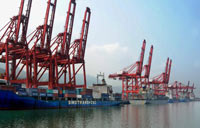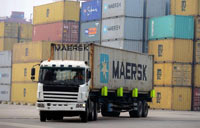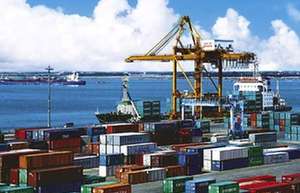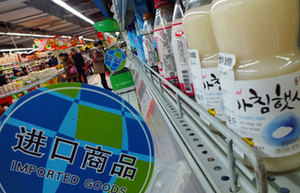China's exports continued to recover in May amid improving demand in developed countries, which analysts believe will ease concerns over a slowdown and help stabilize growth.
Exports increased by 7 percent in May from a year earlier, outpacing the 0.9 percent increase in April and 6.6
|
 |
| China's exports up 0.9% in April |
|
 |
| China's foreign trade down 0.5% in Jan-April |
"The May export performance implies a consolidation compared with the underlying momentum in April," Louis Kuijs, chief economist in China at Royal Bank of Scotland, said in a note.
"This data suggests that after a slow start in the first quarter, global demand growth has improved as stronger economic growth in the United States and Europe starts to filter through to import growth while emerging-market demand growth holds up. ... On the margin, Chinese exporters also benefit from the weakening of the yuan since late February."
Liu Xuezhi, a researcher at the Bank of Communications, said the performance of May exports is "a positive sign" for the economy, which has been showing signs of stabilization since May.
"Exports will maintain stable, but not likely robust, growth in the following months, which will play a crucial role in stabilizing China's economic growth this year as domestic demand remains weak and room is limited for investment stimuli," Liu said.
Economic growth eased to 7.4 percent in the first quarter, below the government's target of 7.5 percent for 2014. But recent data have suggested a stabilizing trend. The purchasing managers index, a key indicator of economic performance, increased to 50.8 in May from 50.4 in April.
However, Wei Jianguo, vice-chairman of the China Center for International Economic Exchanges, warned of a "very challenging outlook" for China's foreign trade this year.
"The recovery in May, mainly backed by supportive measures, may continue in June and July but may not last for the whole year owing to external uncertainties, such as the sluggish economy in the US, the unsteady recovery in Europe and reduced demand in emerging markets." Wei said.
"The economic restructuring at home will constrain steep import recovery. Supportive measures for imports, not only for exports, should be in place."
 |
 |
|
|
